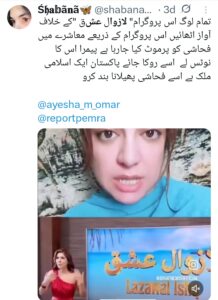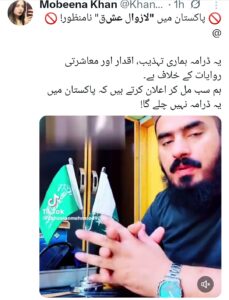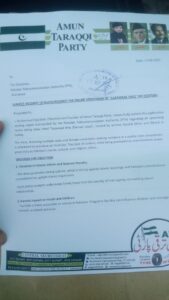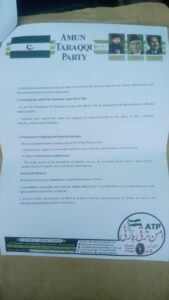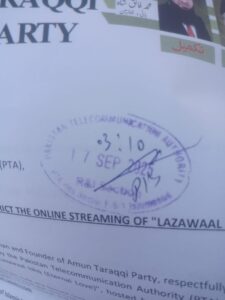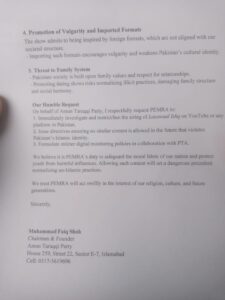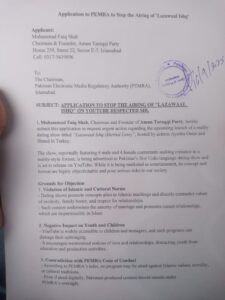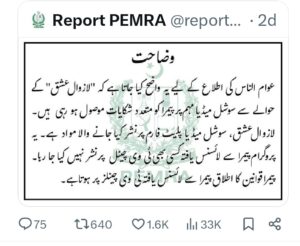Pakistan’s upcoming online reality program Lazawal Ishq, hosted by Ayesha Omar, has become a flashpoint. The show’s teaser triggered protests on social media and formal complaints from political groups and citizens. This article explains the format, official responses, public reaction and political petitions.
What is Lazawal Ishq?
Lazawal Ishq is presented as a dating-format reality show filmed in Turkey and planned for release primarily on YouTube. According to promotional material, the production will include:
- Four men and four women living together in a luxury villa for an extended period (reports mention a 100-day format).
- 24/7 camera coverage documenting participants’ activities, interactions and challenges.
- Games, compatibility tests and eliminations that culminate in a winning couple receiving a prize.
The format resembles international shows like Love Island, adapted by the producers for Urdu-speaking audiences.
Why the Backlash? Cultural and Social Concerns
Pakistan is a largely conservative society where family values, religion and cultural norms shape public life. Many critics argue that a televised dating format — showing unmarried men and women living together and engaging in romantic experiments — is incompatible with those values.
Opponents fear the show may normalise casual relationships, weaken the institution of marriage and influence younger audiences in ways that clash with social and religious expectations. Supporters counter that online exposure to international content already exists and that a localised version could be a safer alternative, but the debate remains intense.
Regulatory Responses: PEMRA and the PTA Question
PEMRA’s Clarification
The Pakistan Electronic Media Regulatory Authority (PEMRA) issued a clarification after the trailer circulated: because Lazawal Ishq will be distributed on digital platforms such as YouTube — and not as a licensed TV broadcast — PEMRA said the program does not fall under its direct jurisdiction for pre-emptive TV blocking.
PTA and Digital Jurisdiction
The Pakistan Telecommunication Authority (PTA) is the statutory body that can act on certain online content. However, the legal framework for policing cross-border digital shows is complex. Critics say current laws are insufficient to address fast-spreading social-platform content and are calling for clearer regulations and quicker redress mechanisms.
Amun Taraqqi Party and Faiq Shah: Formal Complaints and Press Statements
The Amun Taraqqi Party, led by Faiq Shah, publicly condemned Lazawal Ishq, calling it an attempt to “promote immorality” and “undermine national values.” The party submitted formal documents and petitions to both PEMRA and PTA asking for immediate action to remove the show from platforms accessible to Pakistani audiences.
In its press release and filings the party argued:
- “Dating culture is a poisonous trend; marriage is the only pure bond.”
- Online distribution of the program threatens family structures and could harm the younger generation.
- PTA should use its legal powers to remove material that promotes indecency, and PEMRA should revisit policies concerning digital distribution.
Faiq Shah and party representatives also urged civil society, religious scholars and legislators to join complaints and, if necessary, pursue legal action through the courts.
Public Reaction on Social Media (Selected Posts)
The trailer provoked a rapid public response on Twitter (X). Here are representative posts and sentiments — paraphrased for clarity — with the original handles noted where available:
@shabanaPTi — “I strongly oppose ‘Lazawal Ishq’. This program promotes obscenity and must be stopped in Pakistan. Authorities must block such content.”
@ayesha_m_omar — (Host’s handle is being tagged by both critics and supporters asking for clarification and response.)
Mobeena Khan — “Lazawal Ishq is unacceptable here; it goes against our etiquette, values and social customs. Everyone should stand against it.”
@ChHashmatDeen — Supported public petitions and thanked activists urging complaints to PTA; encouraged citizens to follow formal complaint links.
@SaraMirGilgity — Called for immediate cancellation, invoking the protection of Pakistan’s Islamic character.
Other voices such as Qaisar Ahmed Raja, Sehrish Lodhi, Israr Ahmed Rajpoot and Maleeha Hashmey also mobilised petitions and urged the public to file complaints with regulators. These reactions show how quickly a trailer can galvanise citizens and political actors.
What Amun Taraqi Party Submitted (Documents & Press Release)
You shared the party’s press release language and official claims submitted to PTA and PEMRA. Key demands and lines from their material include:
- Immediate removal of content considered indecent or harmful to youth and families.
- Strong legal action against producers and distribution platforms that promote “obscenity.”
- Public appeals calling the program “Lazawal Tabahi” (endless destruction) and demanding that PTA act on its constitutional duties to protect public morals.
- Requests to major platforms including YouTube and Google to remove allegedly harmful content promptly.
The party’s statements stress the need to protect the Pakistani family system and to prevent cultural erosion through unchecked online formats.
Balancing Creative Freedom and Social Responsibility
The controversy around Lazawal Ishq raises important questions: who regulates cross-border digital content, how to protect minors and families, and how to balance artistic freedom with cultural sensitivity.
- Jurisdiction: Regulators and lawmakers must clarify responsibilities for online-only productions and consider updating digital media laws.
- Audience protection: Age restrictions, clear content warnings and parental controls are practical steps to limit exposure to sensitive material.
- Responsible adaptation: If global reality formats are localized, producers and platforms can work with local stakeholders to reduce cultural friction.
Next Steps & What to Watch
At the time of writing:
- PEMRA has clarified its limited jurisdiction over online-only shows.
- Amun Taraqi Party has filed petitions and publicised its demands to PTA and PEMRA.
- Civic groups are collecting signatures and encouraging formal complaints; courts may become involved if regulators do not act.
The coming days will reveal whether regulators respond, whether platforms comply, and whether legal proceedings are initiated.
Final Thoughts
Lazawal Ishq is not just a show trailer; it has ignited a nationwide discussion about media, morals and regulation in Pakistan’s digital era. The controversy shows the need for a thoughtful approach that balances creative content with cultural responsibility.
As the debate unfolds, measured public discussion, legal clarity and responsible production practices can help society manage new forms of entertainment while protecting widely shared values.

